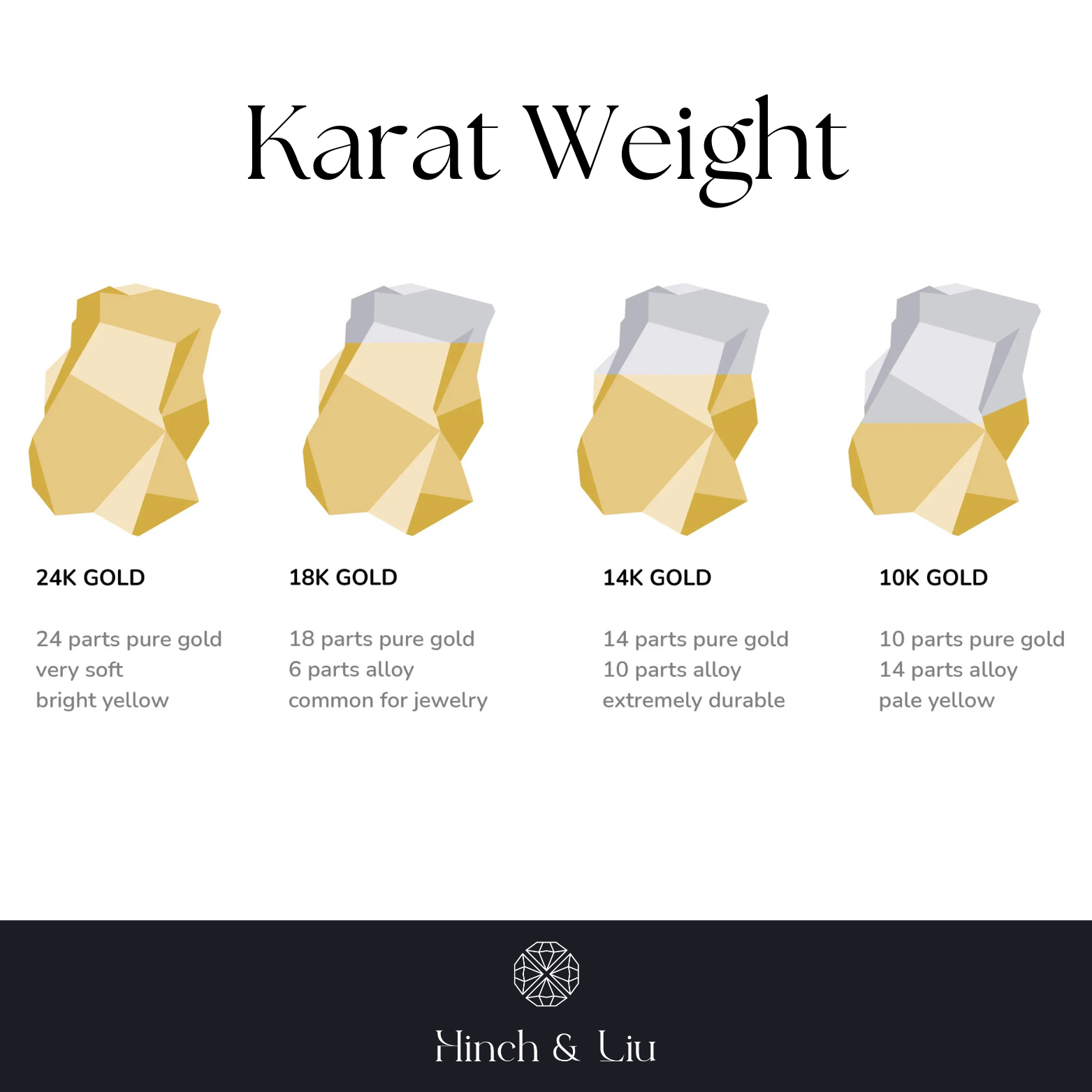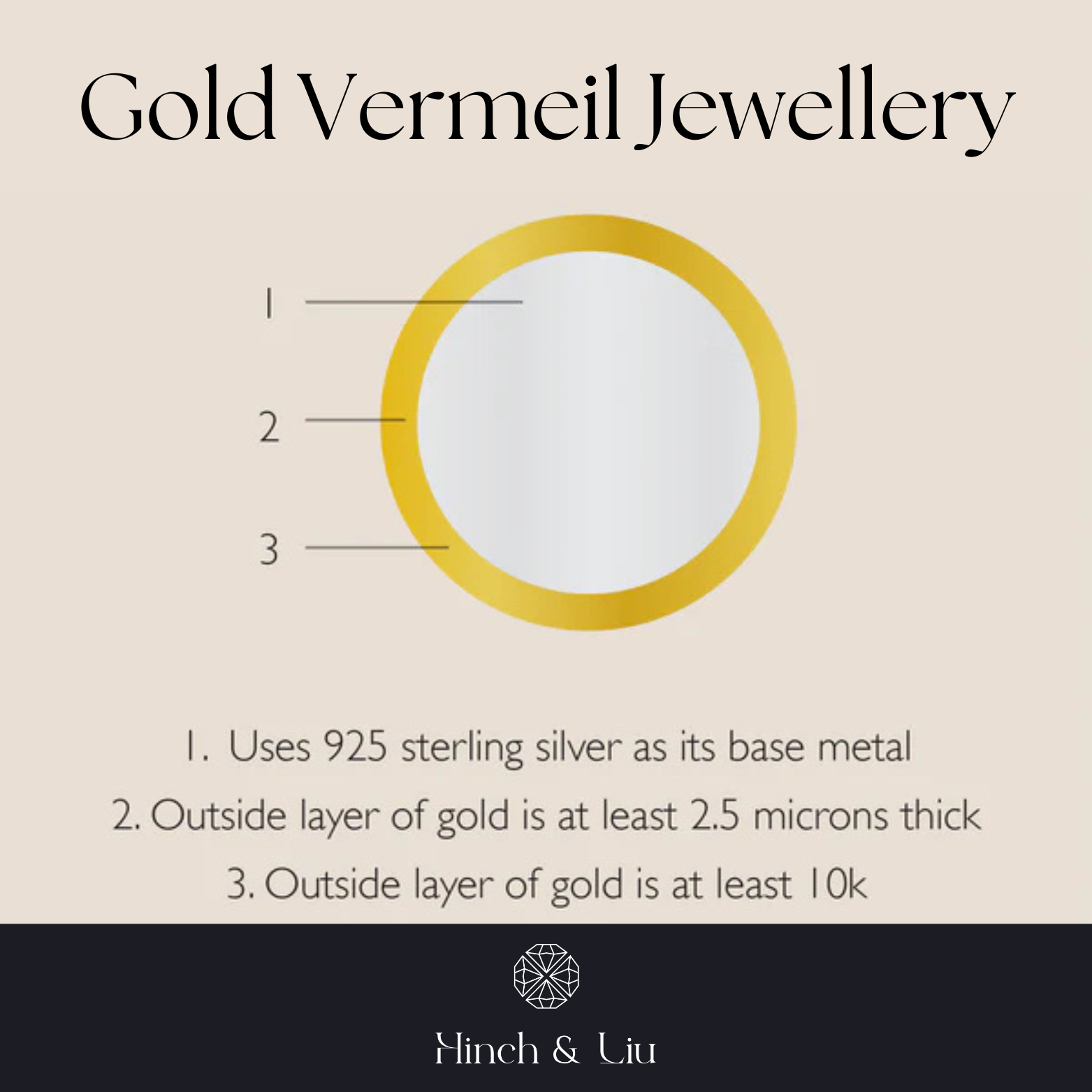
14k Gold vs. 18k Gold: Which One Should You Choose?
When selecting gold jewellery, one of the first decisions you’ll need to make is the gold carat: 14k or 18k? Both options have their unique qualities, and understanding the differences can help you make the best choice for your style, budget, and lifestyle. Let’s explore the key distinctions between these two popular types of gold.
What Does “Karat” Mean?
The term "Karat" (abbreviated as "k") refers to the purity of gold in a piece of jewellery. Pure gold is 24k, but it’s too soft for most practical uses, so it is alloyed with other metals like silver, copper, and nickel to increase its strength and durability.
- 14k Gold: 58.3% pure gold and 41.7% alloyed metals. (harder)
- 18k Gold: 75% pure gold and 25% alloyed metals. (softer)
The higher the karat, the greater the gold content.
Appearance
-
14k Gold:
With a slightly lighter and more muted yellow tone, 14k gold offers a balance between elegance and practicality. The higher proportion of alloyed metals gives it a more subtle, less “buttery” appearance than 18k gold. -
18k Gold:
Rich, vibrant, and luxurious, 18k gold has a deeper yellow hue due to its higher gold content. This makes it a popular choice for fine jewellery and statement pieces.
Durability
-
14k Gold:
The increased proportion of alloyed metals makes 14k gold harder and more resistant to scratches, dents, and wear. It’s an ideal choice for everyday jewellery, such as engagement rings, wedding bands, and bracelets. -
18k Gold:
While more gold enhances the beauty, it also makes 18ct gold softer and more prone to scratching. It is better suited for occasional wear or special-occasion pieces.
Price
-
14k Gold:
More affordable due to its lower gold content, 14k gold is a cost-effective option that still delivers on beauty and durability. -
18k Gold:
With a higher gold content, 18k gold comes at a higher price point. It’s perfect for those seeking a more luxurious and premium feel without going for the expense of 24k gold.
Hypoallergenic Qualities
-
14k Gold:
Due to its higher proportion of alloyed metals, 14k gold may cause irritation for individuals with sensitivities to nickel or other alloys. -
18k Gold:
Containing a greater percentage of pure gold, 18k gold is generally more hypoallergenic and a better option for those with sensitive skin.
Which One Should You Choose?
The decision between 14k and 18k gold ultimately depends on your priorities:
- For Everyday Wear: If durability and affordability are essential, 14k gold is an excellent choice.
- For Luxury and Occasional Wear: If you’re after a richer gold colour and higher purity, 18k gold is ideal.
- For Sensitive Skin: 18k gold, with its lower alloy content, is often better suited for those with skin sensitivities.
Final Thoughts
Both 14k and 18k gold offer unique advantages, and the right choice will depend on your lifestyle, personal style, and budget. Whether you’re buying a timeless piece for daily wear or investing in an heirloom-quality item, understanding these differences ensures you’ll make an informed decision.
Which type of gold speaks to you? Let us know in the comments below!


